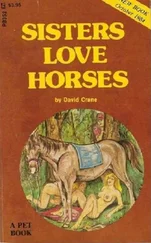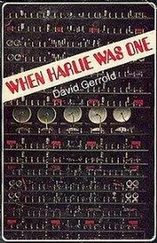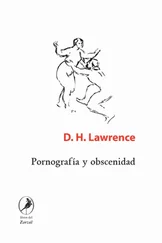David Lawrence - Women in Love
Здесь есть возможность читать онлайн «David Lawrence - Women in Love» весь текст электронной книги совершенно бесплатно (целиком полную версию без сокращений). В некоторых случаях можно слушать аудио, скачать через торрент в формате fb2 и присутствует краткое содержание. Год выпуска: 2003, Жанр: Классическая проза, Современные любовные романы, на английском языке. Описание произведения, (предисловие) а так же отзывы посетителей доступны на портале библиотеки ЛибКат.
- Название:Women in Love
- Автор:
- Жанр:
- Год:2003
- ISBN:нет данных
- Рейтинг книги:3 / 5. Голосов: 1
-
Избранное:Добавить в избранное
- Отзывы:
-
Ваша оценка:
- 60
- 1
- 2
- 3
- 4
- 5
Women in Love: краткое содержание, описание и аннотация
Предлагаем к чтению аннотацию, описание, краткое содержание или предисловие (зависит от того, что написал сам автор книги «Women in Love»). Если вы не нашли необходимую информацию о книге — напишите в комментариях, мы постараемся отыскать её.
Women in Love — читать онлайн бесплатно полную книгу (весь текст) целиком
Ниже представлен текст книги, разбитый по страницам. Система сохранения места последней прочитанной страницы, позволяет с удобством читать онлайн бесплатно книгу «Women in Love», без необходимости каждый раз заново искать на чём Вы остановились. Поставьте закладку, и сможете в любой момент перейти на страницу, на которой закончили чтение.
Интервал:
Закладка:
She felt herself drawn out at evening into the main street of the town, that was uncreated and ugly, and yet surcharged with this same potent atmosphere of intense, dark callousness. There were always miners about. They moved with their strange, distorted dignity, a certain beauty, and unnatural stillness in their bearing, a look of abstraction and half resignation in their pale, often gaunt faces. They belonged to another world, they had a strange glamour, their voices were full of an intolerable deep resonance, like a machine's burring, a music more maddening than the siren's long ago.
She found herself, with the rest of the common women, drawn out on Friday evenings to the little market. Friday was pay-day for the colliers, and Friday night was market night. Every woman was abroad, every man was out, shopping with his wife, or gathering with his pals. The pavements were dark for miles around with people coming in, the little market-place on the crown of the hill, and the main street of Beldover were black with thickly-crowded men and women.
It was dark, the market-place was hot with kerosene flares, which threw a ruddy light on the grave faces of the purchasing wives, and on the pale abstract faces of the men. The air was full of the sound of criers and of people talking, thick streams of people moved on the pavements towards the solid crowd of the market. The shops were blazing and packed with women, in the streets were men, mostly men, miners of all ages. Money was spent with almost lavish freedom.
The carts that came could not pass through. They had to wait, the driver calling and shouting, till the dense crowd would make way. Everywhere, young fellows from the outlying districts were making conversation with the girls, standing in the road and at the corners. The doors of the public-houses were open and full of light, men passed in and out in a continual stream, everywhere men were calling out to one another, or crossing to meet one another, or standing in little gangs and circles, discussing, endlessly discussing. The sense of talk, buzzing, jarring, half-secret, the endless mining and political wrangling, vibrated in the air like discordant machinery. And it was their voices which affected Gudrun almost to swooning. They aroused a strange, nostalgic ache of desire, something almost demoniacal, never to be fulfilled.
Like any other common girl of the district, Gudrun strolled up and down, up and down the length of the brilliant two-hundred paces of the pavement nearest the market-place. She knew it was a vulgar thing to do; her father and mother could not bear it; but the nostalgia came over her, she must be among the people. Sometimes she sat among the louts in the cinema: rakish-looking, unattractive louts they were. Yet she must be among them.
And, like any other common lass, she found her 'boy.' It was an electrician, one of the electricians introduced according to Gerald's new scheme. He was an earnest, clever man, a scientist with a passion for sociology. He lived alone in a cottage, in lodgings, in Willey Green. He was a gentleman, and sufficiently well-to-do. His landlady spread the reports about him; he WOULD have a large wooden tub in his bedroom, and every time he came in from work, he WOULD have pails and pails of water brought up, to bathe in, then he put on clean shirt and under-clothing EVERY day, and clean silk socks; fastidious and exacting he was in these respects, but in every other way, most ordinary and unassuming.
Gudrun knew all these things. The Brangwen's house was one to which the gossip came naturally and inevitably. Palmer was in the first place a friend of Ursula's. But in his pale, elegant, serious face there showed the same nostalgia that Gudrun felt. He too must walk up and down the street on Friday evening. So he walked with Gudrun, and a friendship was struck up between them. But he was not in love with Gudrun; he REALLY wanted Ursula, but for some strange reason, nothing could happen between her and him. He liked to have Gudrun about, as a fellow-mind—but that was all. And she had no real feeling for him. He was a scientist, he had to have a woman to back him. But he was really impersonal, he had the fineness of an elegant piece of machinery. He was too cold, too destructive to care really for women, too great an egoist. He was polarised by the men. Individually he detested and despised them. In the mass they fascinated him, as machinery fascinated him. They were a new sort of machinery to him—but incalculable, incalculable.
So Gudrun strolled the streets with Palmer, or went to the cinema with him. And his long, pale, rather elegant face flickered as he made his sarcastic remarks. There they were, the two of them: two elegants in one sense: in the other sense, two units, absolutely adhering to the people, teeming with the distorted colliers. The same secret seemed to be working in the souls of all alike, Gudrun, Palmer, the rakish young bloods, the gaunt, middle-aged men. All had a secret sense of power, and of inexpressible destructiveness, and of fatal half-heartedness, a sort of rottenness in the will.
Sometimes Gudrun would start aside, see it all, see how she was sinking in. And then she was filled with a fury of contempt and anger. She felt she was sinking into one mass with the rest—all so close and intermingled and breathless. It was horrible. She stifled. She prepared for flight, feverishly she flew to her work. But soon she let go. She started off into the country—the darkish, glamorous country. The spell was beginning to work again.
CHAPTER X.
SKETCH-BOOK
One morning the sisters were sketching by the side of Willey Water, at the remote end of the lake. Gudrun had waded out to a gravelly shoal, and was seated like a Buddhist, staring fixedly at the water-plants that rose succulent from the mud of the low shores. What she could see was mud, soft, oozy, watery mud, and from its festering chill, water-plants rose up, thick and cool and fleshy, very straight and turgid, thrusting out their leaves at right angles, and having dark lurid colours, dark green and blotches of black-purple and bronze. But she could feel their turgid fleshy structure as in a sensuous vision, she KNEW how they rose out of the mud, she KNEW how they thrust out from themselves, how they stood stiff and succulent against the air.
Ursula was watching the butterflies, of which there were dozens near the water, little blue ones suddenly snapping out of nothingness into a jewel-life, a large black-and-red one standing upon a flower and breathing with his soft wings, intoxicatingly, breathing pure, ethereal sunshine; two white ones wrestling in the low air; there was a halo round them; ah, when they came tumbling nearer they were orangetips, and it was the orange that had made the halo. Ursula rose and drifted away, unconscious like the butterflies.
Gudrun, absorbed in a stupor of apprehension of surging water-plants, sat crouched on the shoal, drawing, not looking up for a long time, and then staring unconsciously, absorbedly at the rigid, naked, succulent stems. Her feet were bare, her hat lay on the bank opposite.
She started out of her trance, hearing the knocking of oars. She looked round. There was a boat with a gaudy Japanese parasol, and a man in white, rowing. The woman was Hermione, and the man was Gerald. She knew it instantly. And instantly she perished in the keen FRISSON of anticipation, an electric vibration in her veins, intense, much more intense than that which was always humming low in the atmosphere of Beldover.
Gerald was her escape from the heavy slough of the pale, underworld, automatic colliers. He started out of the mud. He was master. She saw his back, the movement of his white loins. But not that—it was the whiteness he seemed to enclose as he bent forwards, rowing. He seemed to stoop to something. His glistening, whitish hair seemed like the electricity of the sky.
Читать дальшеИнтервал:
Закладка:
Похожие книги на «Women in Love»
Представляем Вашему вниманию похожие книги на «Women in Love» списком для выбора. Мы отобрали схожую по названию и смыслу литературу в надежде предоставить читателям больше вариантов отыскать новые, интересные, ещё непрочитанные произведения.
Обсуждение, отзывы о книге «Women in Love» и просто собственные мнения читателей. Оставьте ваши комментарии, напишите, что Вы думаете о произведении, его смысле или главных героях. Укажите что конкретно понравилось, а что нет, и почему Вы так считаете.











